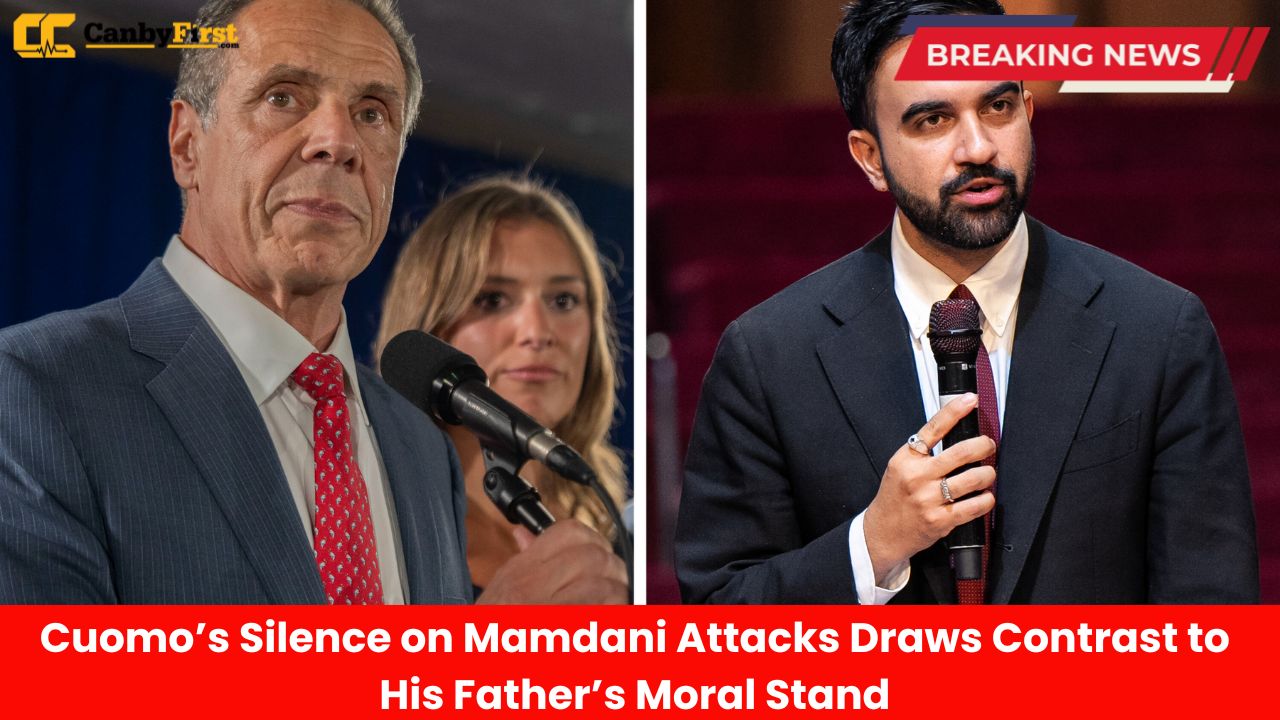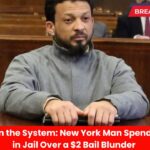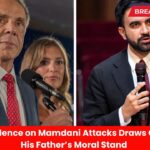New York, US:Former New York Governor Andrew Cuomo is facing growing criticism for his silence over recent bigoted attacks aimed at state Assemblymember Zohran Mamdani. The controversy has reignited debates about political courage and moral clarity, drawing comparisons to a defining moment in Cuomo family history nearly five decades ago.
Background of the Controversy
Mamdani, a progressive lawmaker representing parts of Queens, has been the subject of inflammatory rhetoric fueled by anti-Muslim sentiment related to his strong advocacy for Palestinian rights. Across social media and local forums, Mamdani has encountered a series of derogatory comments and unfounded insinuations targeting his faith and ethnicity.
Despite the intensity of these attacks, Andrew Cuomo—once one of New York’s most powerful Democratic figures—has remained publicly silent. His refusal to denounce the bigotry has stirred debates among party members, community leaders, and civil rights advocates who recall how his father, Mario Cuomo, handled a similar test of principle more than forty years ago.
Also Read
Echoes of 1977
In 1977, during a heated New York City mayoral race, Mario Cuomo confronted racially charged tensions that divided working-class white communities and minority neighborhoods. When extremist flyers and slogans began circulating in Queens, the elder Cuomo delivered an impassioned plea for unity and decency. He denounced the bigotry unequivocally and urged New Yorkers to choose compassion over hate.
That moment became a turning point that helped define Mario Cuomo’s legacy as a statesman guided by conscience rather than political calculation. Supporters and historians frequently cite his response during that campaign as emblematic of moral leadership during turbulent times.
A Different Approach in 2025
Andrew Cuomo’s response, or lack thereof, has proven strikingly different. Observers note that his decision to stay out of the controversy surrounding Mamdani marks a shift from the tradition of moral outspokenness that once shaped New York’s political identity.
Political analysts suggest multiple reasons for his silence. Some argue that Cuomo, already tarnished by past scandals, may want to avoid reigniting public debate around his own political record. Others believe his silence could signal a cautious repositioning as he weighs a future return to public life.
Yet among progressive Democrats and interfaith activists, Cuomo’s muted stance is being read as moral complacency at a time when open denunciations of hate speech are seen as essential to protecting New York’s multicultural fabric.
Community Reaction
Across New York’s Queens Borough, a diverse coalition of civic groups, Muslim organizations, and progressive allies has rallied in defense of Mamdani. Community gatherings have demanded accountability not only for those spreading intolerance but also for political figures who refuse to speak out against it.
For many, Andrew Cuomo’s absence in this conversation feels symbolic. “It’s not just about Mamdani,” said one local organizer. “It’s about whether leaders who once claimed the Cuomo legacy are willing to stand for what it represented.”
Several Democratic figures, including younger members of the state legislature, have voiced disappointment. They argue that public silence from senior figures enables extremism to take deeper root in political discourse.
Meanwhile, Mamdani has continued his work undeterred, urging focus on policy over prejudice. He has reiterated that his constituents deserve leadership that uplifts all communities, not rhetoric that divides them.
The Cuomo Legacy at a Crossroads
Political historians often highlight the Cuomo family as central to New York’s moral and political narrative. Mario Cuomo’s speeches became textbook examples of inclusive politics, and his uncompromising rejection of bias remained a touchstone of his tenure.
Andrew Cuomo’s political arc, in contrast, has traced a more contentious path—rising to national prominence before resigning amid misconduct allegations in 2021. His reemergence in public discussions since then has carried an air of calculation rather than conviction, analysts suggest.
Now, as bigotry once again challenges civic unity, his silence risks eroding what is left of the Cuomo brand—the sense of moral voice that once transcended politics. The parallel between two Cuomos, separated by decades but united by public expectation, underscores how standards of leadership are defined not merely by power but by the willingness to speak when it matters most.
A Generational Debate
The episode has also ignited broader conversations within New York’s Democratic base. As progressive and centrist factions jostle for influence, questions arise about what kind of leadership the party needs in dealing with hate and discrimination.
Younger voices argue that silence from powerful figures undermines the credibility of democratic values. Veteran political advisors, however, suggest Cuomo’s restraint might reflect an era when political statements carried greater strategic risk. Still, in today’s climate of social accountability, that reasoning feels increasingly hollow to many.
What Comes Next
Whether Andrew Cuomo will eventually address the issue remains uncertain. Political insiders believe he may issue a carefully worded statement if public pressure intensifies, but few expect the kind of full-throated defense his father once delivered.
In the meantime, Mamdani’s supporters continue organizing solidarity rallies and interfaith dialogues celebrating New York’s diversity. For them, the fight transcends personalities—it is about affirming the city’s enduring belief that prejudice has no place in public life.
Conclusion
As echoes from 1977 resound in 2025, New York’s political conscience once again stands at a crossroads. The elder Cuomo answered hate with clarity and compassion. The younger Cuomo, for now, has chosen silence. Whether history will judge that choice as caution or complicity remains to be seen.












